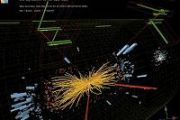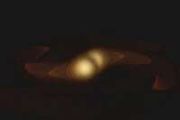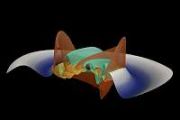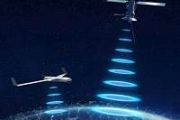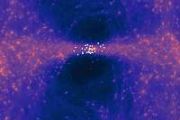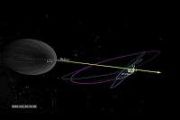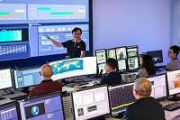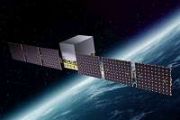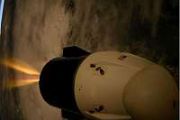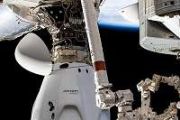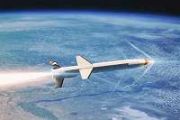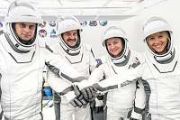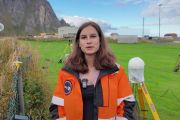
Copernical Team
Watch live: Sławosz Uznański-Wiśniewski arrives at International Space Station

Webb finds evidence of a lightweight planet around TWA 7

Astronomers using the NASA/ESA/CSA James Webb Space Telescope have captured compelling evidence of a planet with a mass similar to Saturn orbiting the young nearby star TWA 7.
If confirmed, this would represent Webb’s first direct image discovery of a planet, and the lightest planet ever seen with this technique.
When work and private life mix: Long-term isolated environments may blur boundaries for space crews
This request seems a bit unusual, so we need to confirm that you're human. Please press and hold the button until it turns completely green. Thank you for your cooperation!
Press and hold the button
If you believe this is an error, please contact our support team.
185.132.36.159 : 359a9c4a-8015-4add-bcb3-7c9d4fef
ESA’s LEO-PNT satellites set to launch by end of year

The European Space Agency (ESA) confirms the launch of the first two LEO-PNT satellites is planned from second half of December 2025, on a Rocket Lab Electron launcher vehicle, from New Zealand. The LEO-PNT in-orbit demonstrator mission is a pioneer mission for Europe that will advance satellite navigation concepts for resilient positioning and timing services.
NASA working to fix space station's NICER X-ray telescope
 The Neutron Star Interior Composition Explorer X-ray telescope has a bad motor that paused its tracking of cosmic objects until NASA engineers can fix it.
NASA engineers are working to fix the problem after pausing the telescope's operations on June 17, when its ability to track celestial objects degraded, according to NASA.
The space agency did not say when the telescope might r
The Neutron Star Interior Composition Explorer X-ray telescope has a bad motor that paused its tracking of cosmic objects until NASA engineers can fix it.
NASA engineers are working to fix the problem after pausing the telescope's operations on June 17, when its ability to track celestial objects degraded, according to NASA.
The space agency did not say when the telescope might r Japan's ispace blames 'hard landing' on moon on Laser Range Finder
 Japanese company ispace said Tuesday that a "hard landing" during its attempted lunar landing in early June was due to an anomaly in the Laser Range Finder.
In the analysis of the "SMBC X HAKUTO-R VENTURE MOON" mission 2 ispace said the hard landing was due to an "anomaly in the laser rangefinder hardware," and the telemetry data also revealed no issues with the lander's software or pro
Japanese company ispace said Tuesday that a "hard landing" during its attempted lunar landing in early June was due to an anomaly in the Laser Range Finder.
In the analysis of the "SMBC X HAKUTO-R VENTURE MOON" mission 2 ispace said the hard landing was due to an "anomaly in the laser rangefinder hardware," and the telemetry data also revealed no issues with the lander's software or pro NASA completes full-duration 'hot fire' test of new RS-25 engine
 NASA fired up a full-duration test of its new RS-25 engine that will power the Space Launch System rocket on Artemis missions to the moon, the space agency announced Monday.
NASA tested RS-25 engine No. 20001 on Friday at the Fred Haise Test Stand at NASA's Stennis Space Center at Bay St. Louis in Mississippi. The full-duration "hot fire" test was the first since NASA completed certific
NASA fired up a full-duration test of its new RS-25 engine that will power the Space Launch System rocket on Artemis missions to the moon, the space agency announced Monday.
NASA tested RS-25 engine No. 20001 on Friday at the Fred Haise Test Stand at NASA's Stennis Space Center at Bay St. Louis in Mississippi. The full-duration "hot fire" test was the first since NASA completed certific First sea-level records for coastal community protection

While satellites have revolutionised our ability to measure sea level with remarkable precision, their data becomes less reliable near coasts – where accurate information is most urgently needed. To address this critical gap, ESA’s Climate Change Initiative Sea Level Project research team has reprocessed almost two decades of satellite data to establish a pioneering network of ‘virtual’ coastal stations. These stations now provide, for the first time, reliable and consistent sea-level measurements along coastlines.
The beginning of Ignis Mission
 Video:
00:03:10
Video:
00:03:10
These are the highlights of the launch on Axiom Mission 4 (Ax-4) of ESA project astronaut Sławosz Uznański-Wiśniewski from Poland to the International Space Station. The mission is called Ignis.
A SpaceX Falcon 9 rocket lifted off from launch pad 39A at NASA’s Kennedy Space Center in Florida, USA, on 25 June 2025.
Sławosz is mission specialist on the Dragon spacecraft. The other crew members are Shubhanshu Shukla from India and Tibor Kapu from Hungary. They fly under the command of Peggy Whitson from USA.
Sponsored by the Polish government and supported by ESA, the Polish Ministry of Economic Development
Liftoff of Axiom Mission 4
 Video:
00:03:50
Video:
00:03:50
The Axiom Mission 4 (Ax-4) crew lifts off to the International Space Station atop a SpaceX Falcon 9 rocket from launchpad 39A at NASA’s Kennedy Space Center in Florida, USA, on 25 June at 02:31 EDT, local time (07:31 BST/08:31 CEST).
ESA project astronaut Sławosz Uznański-Wiśniewski travels to his new home in space in the Dragon spacecraft. Sławosz is part of Axiom Mission 4 alongside Peggy Whitson (USA), Shubhanshu Shukla (India) and Tibor Kapu (Hungary).
During their journey on the Dragon spacecraft to the orbital outpost Sławosz and Tibor will serve as mission specialists, Shubhanshu will be the crew’s pilot and Peggy will





